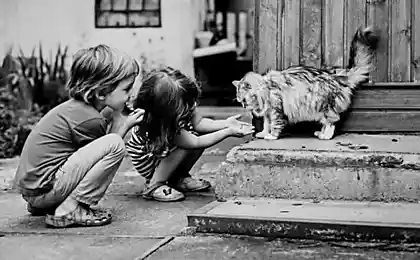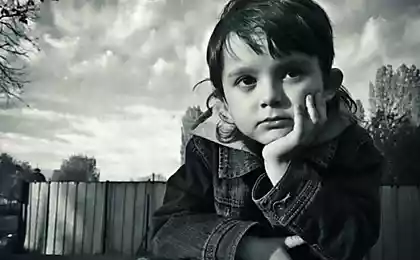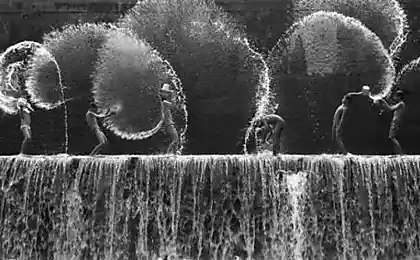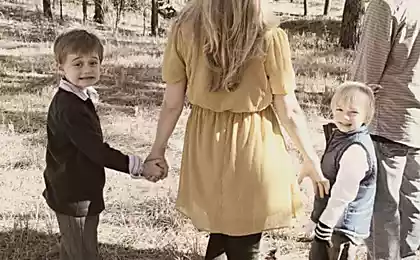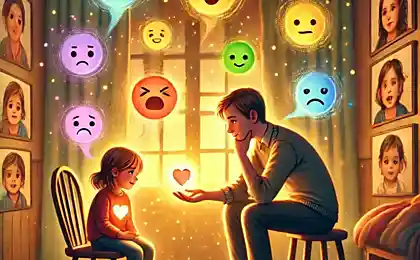214
We punish children for being just people.

A young child threw a cube on the floor, spilled water, ran through puddles or was rude in response?
Often, we adults unwittingly perceive such actions as a serious “crime”.
And then we punish the baby with criticism, screaming, deprivation of something pleasant.
But if you think about it, do we not, as adults, perform during the day?
Are there many things we would have been punished for as a child?
We may be late for work or forget the keys at home, sometimes expressing irritation.
We are angry with others and make small mistakes.
However, we rarely fine ourselves for this.
What does this double moral mean for our children?

Children's "misdemeanors" and our adult counterparts
Many adults do not notice the obvious parallels.
For example, we scold a child for “setting on a phone screen.”
But in the same situation, we spend hours on social networks.
Or do not let the child be capricious when he is tired, but at the same time they are able to break down on loved ones after a hard day.
This contrast not only confuses the child, but also makes him confused:
Why are the same things acceptable for adults and not for children?
Moreover, adults sometimes punish children for displaying natural feelings.
The child may cry from resentment or fear, but parents often say, “Stop crying!”
We can give way to tears when we are stressed or lost.
And nobody thinks it's a bad thing.
As a result of this unconscious inconsistency, little people grow up feeling guilty about what they do.
They are “just as they are” with their emotions, their spontaneous reactions, their explorations of the world.

Why are we doing this?
We often use educational scripts that we inherited from our childhood.
If our parents were annoyed by a child's noise or the question "why?" asked ten times in a row,
We unconsciously broadcast the same pattern of behavior.
Sometimes these reactions are based on myths:
If disobedience is not stopped now, the child will grow up spoiled.
“You have to be tough to obey.”
But not every child’s act is an attempt to protest.
Often behind this is an elementary interest in the world and a lack of understanding of adult norms.
Fear of losing control
Another reason is the fear of being a weak parent.
Many believe that if you do not react strictly, the child will cease to respect and obey.
However, practice shows that shouting and ultimatums generate more resentment and resistance than obedience.
The child grows up in an atmosphere where all his actions are subject to categorical condemnation.
They are not learning constructive dialogue.
Over time, this can develop into a serious generational conflict and a mutual emotional barrier.

How to find a balance between discipline and humanity
- Empathy and empathy.
Remember that the child has his own rhythm of development, his inner world and reasons to do so.
Try to see the situation through their eyes before reacting harshly. - Clear rules and consistency.
If you forbid something to a child, think about how meaningful the prohibition is.
Make sure that you follow the same rules yourself, otherwise the child will not understand why “it is not for him, but you can”. - Explain the reason.
It is important for children to understand why something is expected of them.
The phrase “because I said (a)” only reinforces fear or aggression.
Whereas “it’s important for your safety/health/success” builds trust and understanding. - Yes, there will be a mistake.
Admit that you are also making mistakes.
So you show your child that it's okay to be wrong.
Learn to find a constructive way out together. - Track your emotions.
If you think you're ready to explode,
Take a pause: leave the room, take a deep breath, count to ten.
A violent reaction rarely helps to establish contact with the child.
Ultimately, our task as parents is not to suppress the personality of the child, but to help him adapt to society.
without losing curiosity and creativity in the world.
Yes, children do not always behave “perfectly”, but we, adults, also allow numerous punctures:
We forget, we are late, we are lazy, we show emotions.
Maybe we should show a little more understanding and respect that children are just people.
They also tend to make mistakes, experience different feelings and explore forbidden territories.
And when we rethink our attitude towards children's pranks,
Being in the place of a child can be a great way to learn wise parenting.
After all, the main thing is not to eliminate all the “wrong” children’s actions, but to give them confidence.
They are loved and valued for who they are, helping them become a little better at the right time.










